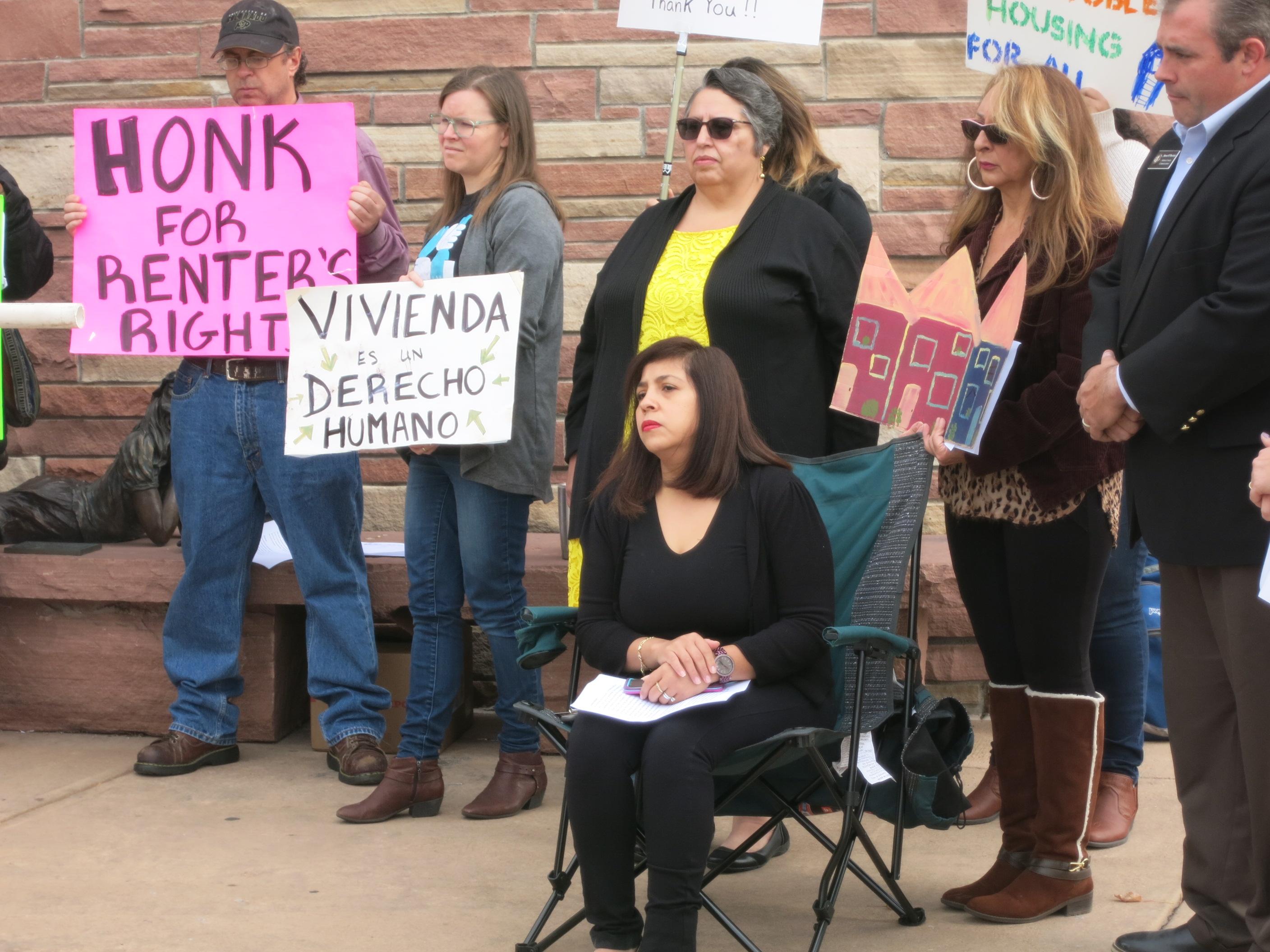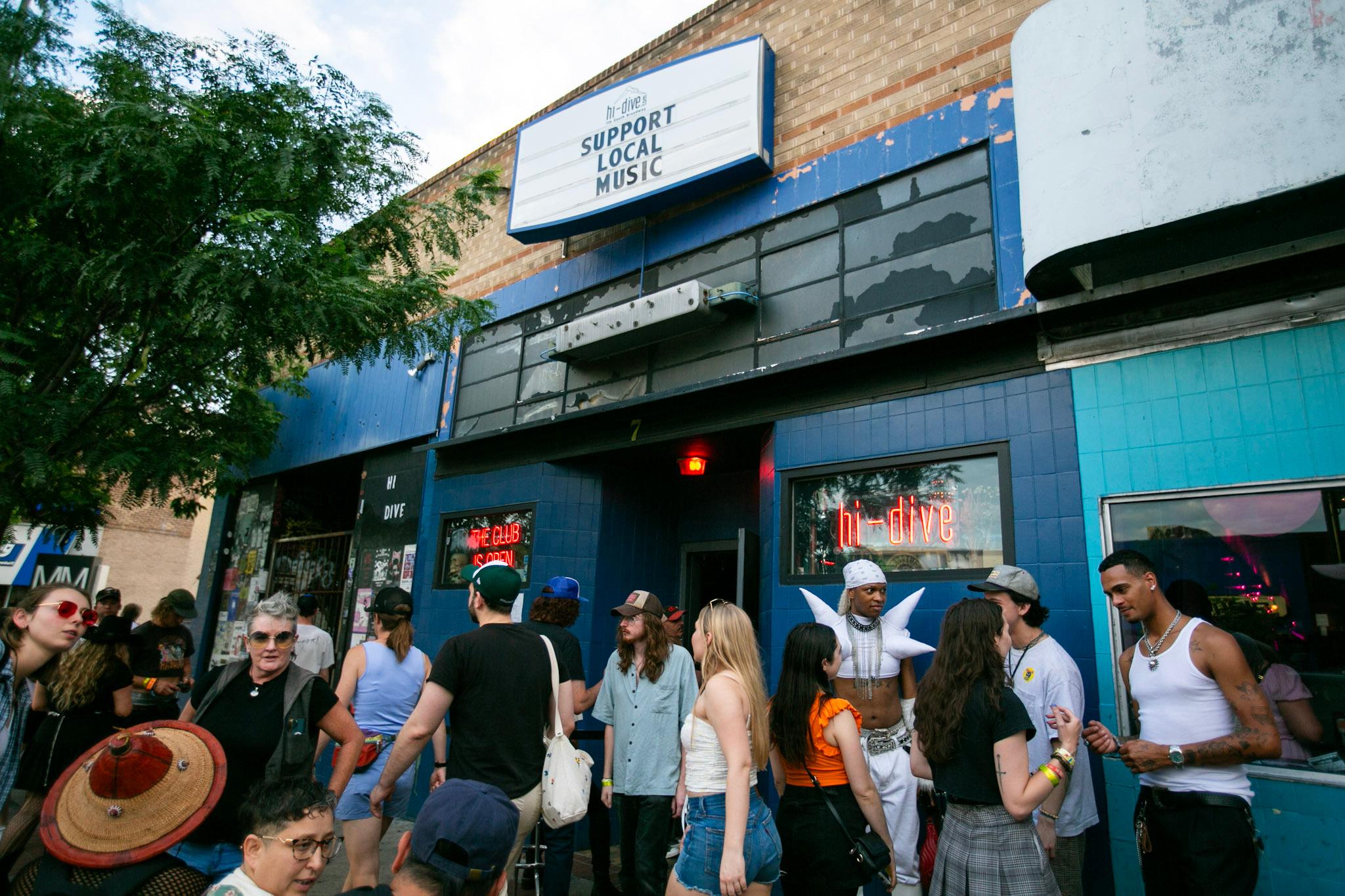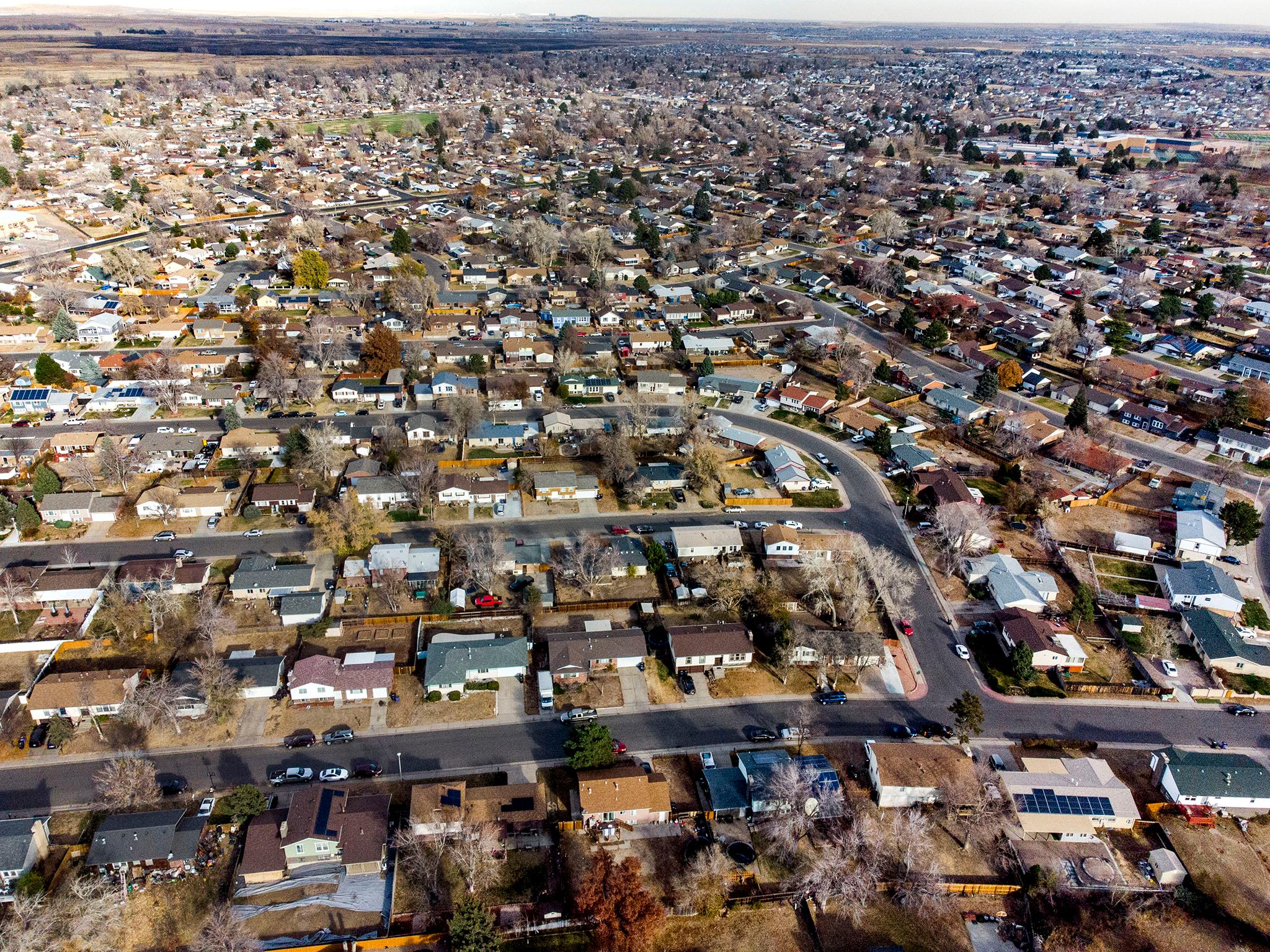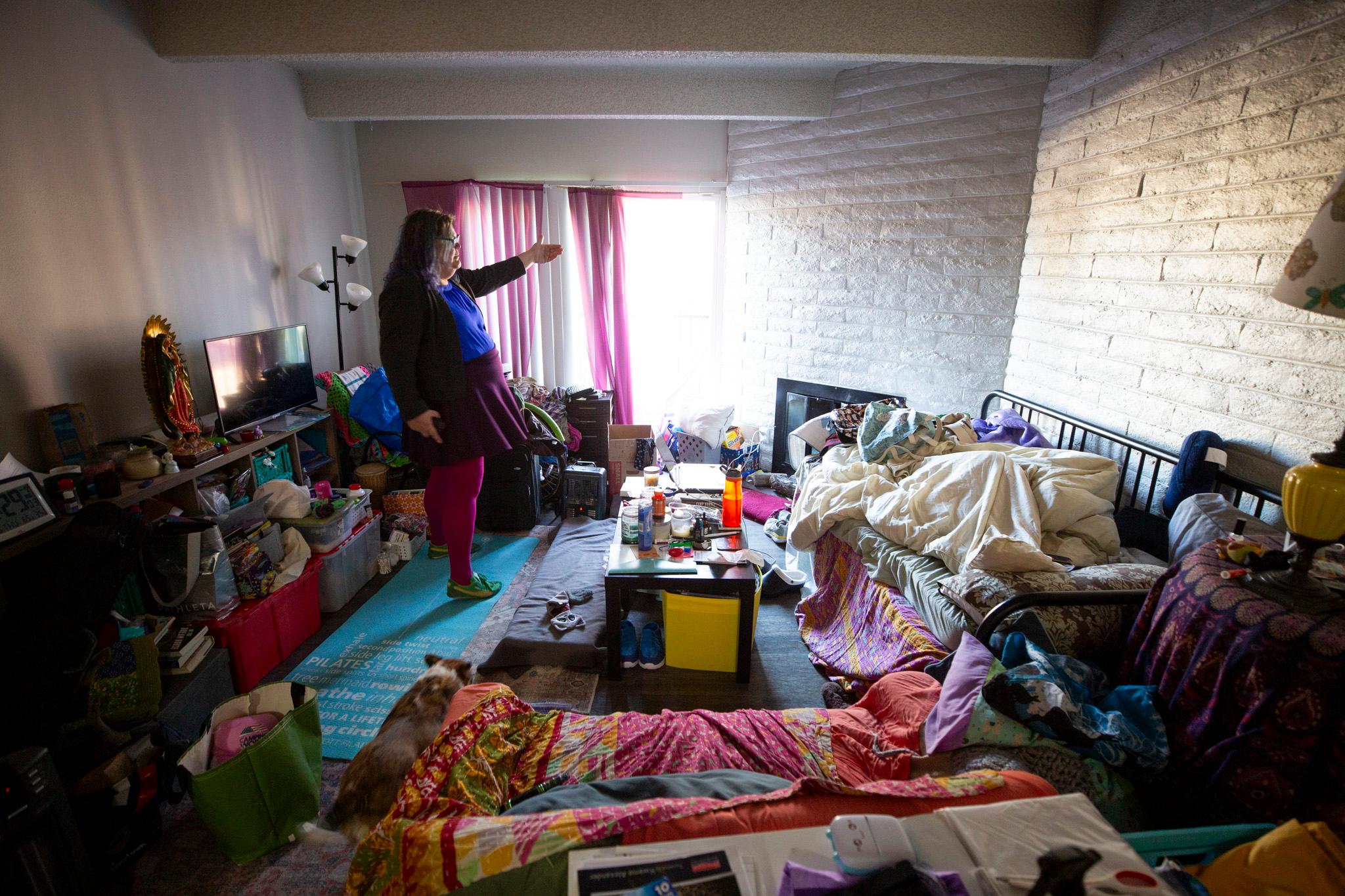Community members and politicians near Denver on Monday celebrated the creation of a publicly funded clinic offering renters facing eviction something they usually don't get — legal representation.
United for a New Economy (UNE) Colorado, part of a network of grassroots organizations across the country focused on issues like affordable housing and racial and economic inequities, said community members identified such a free clinic as a priority in Westminster and other Adams County cities that have been affected by ripples from the capital’s rising rents.
Claudia Vazquez, a fast-food worker, mother of four and UNE member, stood with neighbors holding hand-made signs declaring "legal aid equals human rights" and "housing is a human right" at a news conference Monday. She said with funding, lawyers and support from city officials, they were taking a step "so that we can live in dignity."
UNE members who have been lobbying for the clinic for two years found partners in Colorado Legal Services, a nonprofit that represents low-income clients; Westminster City Council Representative Emma Pinter; and Adams County Commissioner Steve O'Dorisio. Funding has been secured through 2020.
Say someone in Westminster has been served with an eviction notice for being behind on the rent and feels they should be given a chance to negotiate for more time to pay. They'd walk into the Brighton courthouse or the Irving Street Library in Westminster, where Monday's news conference was held, to meet with a Colorado Legal Services attorney. No appointment is necessary for that first visit, and follow-ups would be scheduled as needed.
An attorney will also be available once a month in a part of Aurora that is in Adams County, which has a population of more than 500,000 with just under 12 percent living in poverty, according to U.S. Census estimates. Denver County is home to more than 700,000 people, 14 percent living in poverty.
James Carr, a Colorado Legal Services staff attorney, said his organization was hiring lawyers for the clinic and awaiting final funding steps. He said the clinic should be ready to open by month's end.
Once that happens, O'Dorisio said, "we will have something that we haven't had in Adams County before.
"What we're working toward are here are more fair and equitable outcomes for everyone," he said.
The program is new for Westminster, and it's something the rest of the state will watch.
“This new pilot is going to be a huge help to the community,” said Jack Regenbogen, an attorney with the Colorado Center on Law and Policy. He was not involved with the UNE project.
Regenbogen worked with colleague Jesus Loayza and Aubrey Hasvold of the Colorado Coalition for the Homeless on a 2017 study in which they reviewed thousands of eviction cases in Denver between 2014 and 2016. They found that while landlords had legal representation in every case, tenants in housing court were only represented in 1 to 3 percent of cases.
Regenbogen told Denverite the situation was likely similar across Colorado, where he said 45,000 eviction cases are filed every year. He added that the sample of Denver tenants who were represented was so small that it was hard to draw conclusions, but that having a lawyer does seem to help keep people in their homes.
“There’s just this vast inequity in our justice system,” Regenbogen said.
His organization and the Colorado Coalition for the Homeless have called, among other suggested remedies, for grants to fund legal representation for impoverished tenants, perhaps raised through a surcharge on the filing fees landlords pay to take tenants to court.
Brothers Redevelopment President Jeff Martinez welcomed the Adams County move.
"Having representation for both sides is key to resolving an issue. It's better to have everybody informed," he said, and stressed the need for lease agreements to be signed so that renters and owners know their rights and obligations.
Brothers is a Denver-based nonprofit that worked with the Denver Metro Fair Housing Center to establish a hotline, Colorado Housing Connects, to help renters facing evictions and others. In addition to being an advocate for low-income home-seekers, Brothers Redevelopment is a landlord, with more than a dozen properties with affordable apartments for seniors, people with disabilities and families.
"It's too bad that evictions, certainly in this market, probably are on the upswing," Martinez said. "It's part and parcel, with supply and demand. It's a tough one."
9to5 Colorado, part of a national organization that represents working class women, has joined the Colorado Center on Law and Policy and the Colorado Coalition for the Homeless in calling for free legal help for renters facing eviction. In a 2016 report it based on interviews with nearly 1,000 low-income Denver area residents, 9to5 said nearly four in 10 had been forced to leave a rented home in the previous three years.
An eviction record can close doors.
Among them was 9to5 board member Yolanda Begay, who was evicted when she couldn’t afford to pay her rent, the most likely reason for an eviction. Begay told her organization of the anguish of having no answer for her son when he asked where they would sleep at night. Under Colorado law, a tenant alleged to be behind on the rent or to have committed lease violations has three days to rectify the problem before a landlord can file an eviction notice.
“Once you get evicted, that eviction stays on your record for up to seven years,” 9to5 housing organizer Cesiah Guadarrama Trejo told Denverite. She added landlords often refuse to rent to prospective tenants if evictions show up in background checks, forcing people into poorly maintained housing managed by owners willing to take them despite their eviction records or into homelessness.
UNE spokeswoman Shanta Farrington said organizers want the new clinic “to be an example, a testament for the rest of Colorado.”
It’s a national issue. In his Pulitzer Prize-winning 2016 book “Evicted: Poverty and Profit in the American City,” Princeton sociologist Matthew Desmond describes families getting behind on the rent because they instead were paying for funerals, utilities, food, drugs — addiction takes a huge toll — as housing prices rise and wages stagnate. Desmond proposes publicly funded legal services for low-income families facing eviction. He cited a 2005-08 program in New York that prevented evictions in 86 percent of the cases in which legal assistance was provided. It cost around $450,000, but saved the city more than $700,000 in estimated homeless shelter costs, Desmond writes.
Adams County committed $50,000 to the new clinic. Among the cities that helped bring the budget to just under $200,000 with smaller contributions were Aurora, Commerce City and Westminster.












